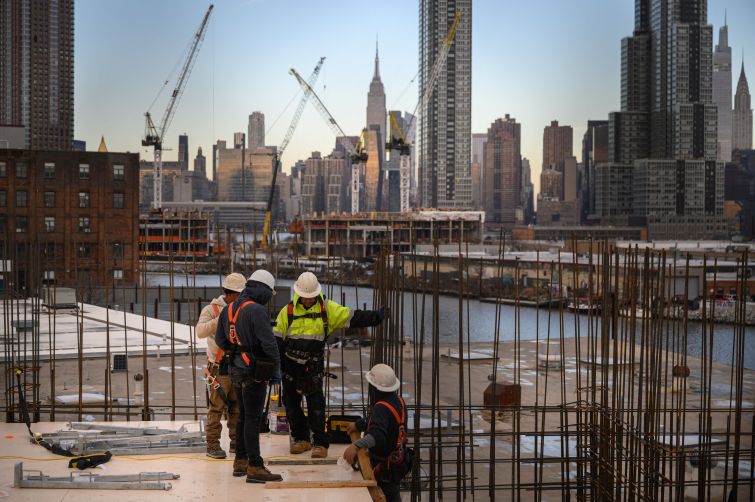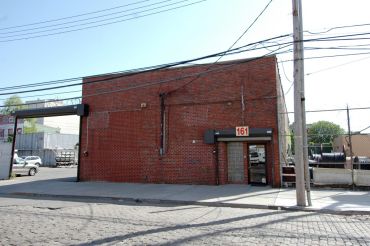New York Contractors Are Pessimistic About 2024
Rising costs, labor shortages and fears of an economic slowdown are just for starters, a new survey finds
By Rebecca Baird-Remba January 4, 2024 12:00 pm
reprints
Contractors across New York state feel that their work on public infrastructure as well as industrial and educational projects would grow this year, but are pessimistic about the construction of new apartment, hotel, retail and office buildings, according to a new survey conducted by the Associated General Contractors (AGC).
The trade organization, which surveyed 33 construction companies in New York and 1,300 nationwide, found that, on the state and national level, contractors are worried about labor and supply chain issues, rising costs, canceled projects and a potential recession in 2024.
“On balance, AGC members remain optimistic about most market segments for 2024,” said AGC’s chief economist, Ken Simonson. “Segments they’re negative about are office construction and retail. New York also has a lot of challenges, like declining population and having a lot of vacant office space.”
New York’s contractors said they expected major gains — on a dollar value basis — for construction projects in transportation, power, water, warehouses and manufacturing, and schools compared to their 2023 projects, the survey showed. More than 60 percent expected a boost in transportation and power facility construction this year, while 47 percent anticipate an increase in water and sewer projects. And nearly half forecasted a spike in their manufacturing and warehouse construction for 2024 compared with last year.
However, the outlook for multifamily, office, hotel and retail wasn’t so rosy, reflecting the sluggish pace of housing development and the distressed office market in New York City in particular. Roughly 45 percent of New York state contractors expected their work in multifamily projects to decrease this year compared to 2023, while about a third anticipate a decline in hospitality projects in 2023.
New York has also struggled to develop and retain skilled construction workers for more than a decade, and a tight labor market hasn’t helped. A third of AGC’s survey respondents felt that it would continue to be hard to hire in 2024, while another 27 percent said that it would get even more difficult to hire skilled tradespeople this year than it was in 2023.
Seventy percent said they had a hard time filling some or all positions. Nearly two-thirds of contractors also said they increased base pay rates in 2023, more than in 2022.
“Construction job openings nationally soared from the end of November 2022 to the end of November 2023,” Simonson.
Simonson added that the Bureau of Labor Statistics found that up to 390,000 job openings nationally were posted in November, a 38 percent increase compared to last year. That also exceeded the 271,000 people hired in November.
Unsurprisingly, contractors are still struggling with supply chain issues. Nearly half — 45 percent — said they had used alternative materials or products in a project, while another third reported turning to alternative suppliers for certain materials.
And canceled construction projects have continued to plague the industry as higher interest rates hampered property sales and new development. Nearly half of contractors said they had projects canceled or postponed in 2023 that had not been rescheduled.
Of those, 55 percent said developers had axed the project over rising costs for construction or insurance, a quarter said projects were killed over rising interest rates, and 38 percent of contractors cited a lack of financing as the primary cause of a canceled project.
The majority of New York contractors also reported being worried about an economic slowdown or a recession, rising interest rates and costs, increasing labor costs and a shortage of construction workers, the survey showed. At least a third of contractors feared project delays because of supply chain issues, as well as state and local regulations and not having enough private sector work.
Simonson noted that while supply chain issues had improved significantly in 2023 compared to the previous year, some construction supplies are still hard to get.
“Getting electrical equipment has been a problem, like switching gear to distribute electrical lines,” he added. “The lead times on those are extremely long and not getting better from what I hear from contractors.”
Rebecca Baird-Remba can be reached at rbairdremba@commercialobserver.com


